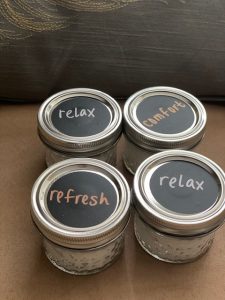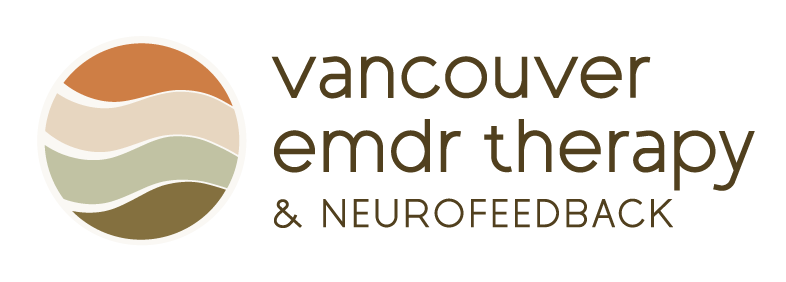Learn more about meditation, dry brushing for dissociation, Epsom Salts baths, trauma recovery book and breathing techniques to regulate your nervous system.
This is a list of monthly “trauma recovery tips” from a trauma specialist to help you reduce the effects of trauma and chronic stress on your life so you can live from a place of healing, hope and happiness.
Healing from trauma is a different process for each person. As a trauma-focused therapist I never tell my clients to do anything that I haven’t tried or use regularly in my life. I have learned over the years through experience, research, feedback from clients and insights from other professional’s successful ways of healing emotional wounds as well as managing persistent stress. What I share with you here is both cutting edge and tried-and-true techniques for healing.
Trauma Tip #1
Passage Meditation.  Meditation is so good for trauma recovery and resilience. It is good for the soul. Here is a unique form of meditation that may be helpful for you. It is direct, simple and practical. It is called passage meditation:
Meditation is so good for trauma recovery and resilience. It is good for the soul. Here is a unique form of meditation that may be helpful for you. It is direct, simple and practical. It is called passage meditation:
In this form of meditation, you concentrate (slow and sustained focus) on the words of an inspirational text or passage from one of the great wisdom traditions. These passages can be religious or non-religious depending upon what you are drawn to. Eknath Easwaran developed this method, and the instructions are straightforward.
You start by choosing an inspirational passage and memorizing it. The passage for meditation should be positive, practical and uplifting, and there are lots of passages you can choose from. Some are short, others longer, and they’re from all different traditions.
Once you’re ready with your passage, then
- Sit in a chair, or on a cushion on the floor.
- Sit upright and close your eyes.
- Go through the words of your memorized passage slowly and silently in the mind.
- Do your best to concentrate on the passage – when distractions come, just bring your mind back to the words.
- At the end of the passage, go back to the beginning, or start a new one.
- Do this for 30 minutes every morning.
My current passage is by Thich Nhat Hanh; Smile, breathe and go slowly.
Trauma Tip #2
Dry skin brushing to help with dissociation. Dissociation is the body’s natural response in dealing with PTSD. Dissociation at some level is common in sexual assault survivors and those with attachment trauma. Dry skin brushing helps to bring awareness to one’s body and body sensations. It can be grounding and stimulating. Besides helping with dissociation, it is commonly used for detoxify the body by increasing blood circulation and promoting lymph flow/drainage.
Use a natural bristled brush. Start from the feet/ankles and work my way upward in long fluid strokes on limbs and circular motions on torso and back. Move in a upward direction. It can be sensitive on the abdomen, breasts and neck, so lighten up pressure as needed. Do daily before showing or as needed with dissociation.
Trauma Tip #3
 Reduce anxiety and calm your body with Epsom Salt baths or foot baths. Magnesium assists in stimulating muscle and nerve functioning, limits inflammation in the body, and improves the flow of oxygen and blood through the body. When Epsom salts are added to your bath, your body is replenished with magnesium. In turn, this helps in the production of serotonin which is a chemical that helps lead toward an improved mood, reduction of anxiety, and promotion of calmness. Be creative and add your favorite essential oils to your Epsom Salt bath or foot bath. Take a deep breath. Relax and enjoy!
Reduce anxiety and calm your body with Epsom Salt baths or foot baths. Magnesium assists in stimulating muscle and nerve functioning, limits inflammation in the body, and improves the flow of oxygen and blood through the body. When Epsom salts are added to your bath, your body is replenished with magnesium. In turn, this helps in the production of serotonin which is a chemical that helps lead toward an improved mood, reduction of anxiety, and promotion of calmness. Be creative and add your favorite essential oils to your Epsom Salt bath or foot bath. Take a deep breath. Relax and enjoy!
Trauma Tip #4
Reading Rhythms of Recovery by Leslie Korn.
Trauma Tip #5
Pranayama breathing to regulate your nervous system. Pranayama exercises involve the alternation of breathing patterns to facilitate control of the Autonomic Nervous System, brain hemispheric dominance, and thus states of consciousness, including mood.
This information is provided by Lemecia Lindsey, LICSW. Lemecia has dedicated her private counseling practice to helping clients heal from trauma. She specializes in EMDR therapy, Neurofeedback and is an Integrative Medicine Mental Health Provider.
*This list is not a substitute for medical intervention. Consult with a doctor to decide what is best for you.




